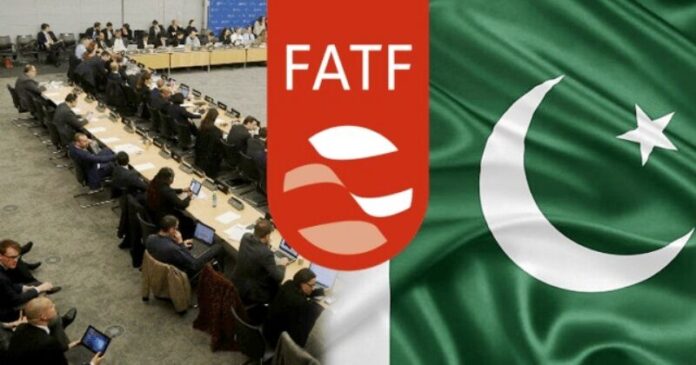ISLAMABAD: Adviser to Prime Minister on Finance and Revenue Dr Abdul Hafeez Shaikh has said that Pakistan, as a responsible member of the international community, has increased the effectiveness of its anti-money laundering regime so as to fulfil its commitments for early completion of the FATF Action Plan.
“Of the 27 agenda items under the Financial Action Task Force, Pakistan had already addressed 14 items while substantial progress has been made in addressing the remaining 13,” the PM’s aide said in his keynote statement to the UN’s ‘High-Level Panel on International Financial Accountability, Transparency and Integrity for Achieving the 2030 Agenda’.
The UN panel discussed the overall efforts undertaken by member states for the implementation of comprehensive international frameworks related to financial accountability, transparency and integrity critical to financing the sustainable development goals.
United Nation’s General Assembly President Tijjani Muhammad-Bande and Economic and Social Council President Mona Juul were also part of the panel discussion.
In his address, the PM’s adviser informed the panel that Pakistan had made considerable progress in addressing the recommended actions of Mutual Evaluation Report, which included 15 legal amendments to meet technical compliance, updation of National Risk Assessment on ML/CT, implementation of AML/CFT measures on Designated Non-Financial Business and Professions, Central Directorate of National Savings and Pakistan Post, broadening the sanction regime etc.
Similarly, he said, the government had taken various measures in recent years to contain illicit financial flows through the strengthening of the AML/CFT regulations on Customer Due Diligence (CDD) and Know Your Customer (KYC), while other AML/CFT instructions to financial institutions were also brought in line with FATF standards.
“To further align with the international standards, the AML Act had been amended to include tax offences as predicate offences. A range of predicate offences have been added to the schedule of AML Act to include serious offences including corruption, narcotics, terrorism and human trafficking,” he added.
Shaikh further informed the panel that violations of Section 4(1) (un-authorized FX business) and Section 5 (Illegal transfers) of Foreign Exchange Regulation Act ( FERA), 1947, had been incorporated into the schedule of Anti-Money Laundering (AML) Act 2010, wherein those offences might also be punishable under AML Act 2010. He said amendments to Protection of Economic Reforms Act (PERA) 1992, had been incorporated to restrict the feeding of foreign currency accounts by non-tax filers.
The adviser said that Pakistan had launched the Pakistan Remittances Initiative (PRI) to facilitate the inflow of home remittance into Pakistan through formal channels. Resultantly, Pakistan had registered growth in remittances during the last decade, rising from $6.4 billion in FY08 to $23 billion in FY20.
“Automation of Electronic Import Form (EIF) and Electronic Export Form (EEF) by banks through Pakistan Customs’ software – Web Based One Customs (WeBOC) to synchronize import and export of goods and payments by banks were also some of the steps taken by the government to further streamline the processes,” he added.
He said the State Bank of Pakistan and Federal Investigation Agency of Pakistan was continuing to identify illegal MVTS (hawala/ hundi operators) and take measures including closure, investigation and prosecution these operators.
Shaikh also called upon the panel to look into how multinational corporations minimize their tax liabilities to revenue authorities in their country of operations. He observed that MNCs had devised sophisticated financial and operational models enabling them to manoeuvre their way through tax systems and shift their profits to low tax jurisdictions and, in many instances, tax havens that are highly opaque in nature.
He said the Panama Papers highlighted the myriad ways in which the rich could exploit secretive offshore tax regimes – and widen the gulf between rich and poor. Abuse of anonymous shell companies is among the reasons why many countries are facing greater challenges today in the face of the COVID-19 pandemic. For years, they have enabled corruption, fraud and tax evasion, he added.
The adviser also drew the attention of the panel to a research paper by the Transparency International, showing that the overall level of compliance on the part of countries with beneficial ownership transparency standards was low, as many countries had failed to take adequate measures such as the establishment of registers. Asset recovery by developing countries has been slow and legal framework remains cumbersome, he noted.

























